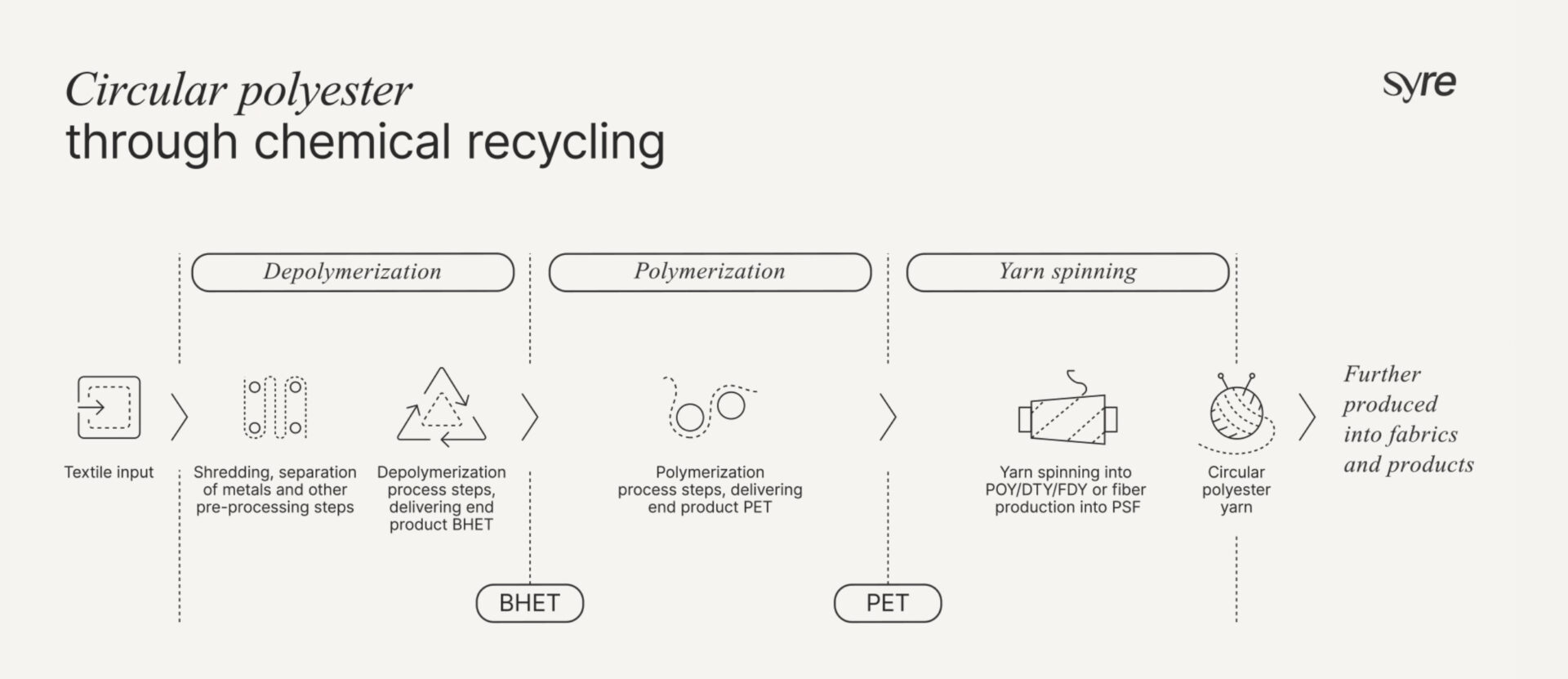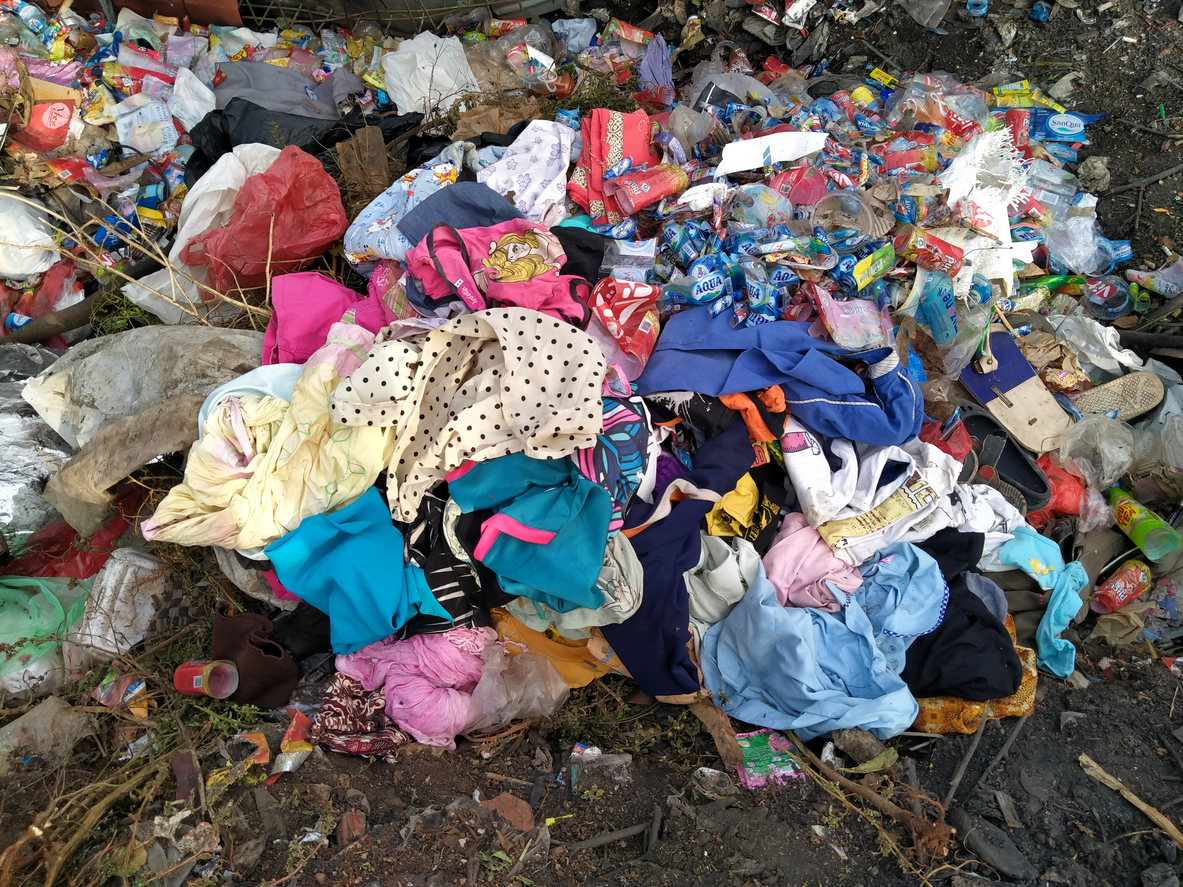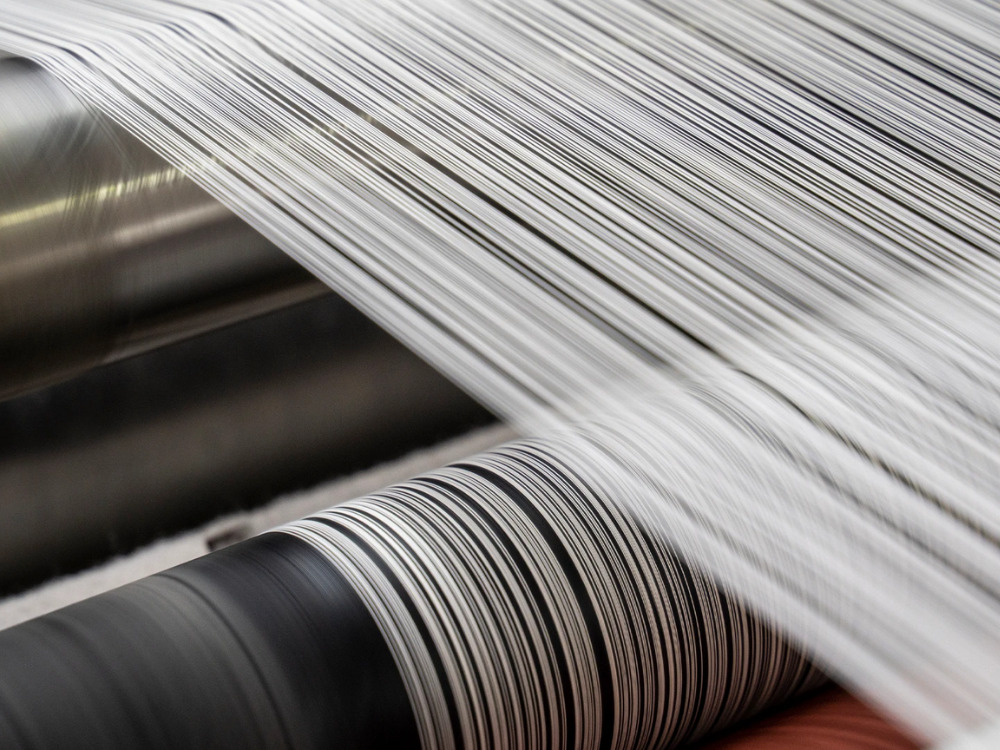Stockholm, Sweden-based Syre recently announced a $100 million Series A raise, the bulk of which will go towards making textile-to-textile recycling a reality “at hyperscale,” starting with polyester.
H&M Group and impact investor Vargas launched the company in March of this year to help shift the textile industry away from virgin polyester and bottle-to-textile recycling, and towards a more circular system.
At launch, H&M group also announced an offtake agreement with Syre worth $600 million over seven years, which will cover “a significant share” of the H&M Group’s recycled polyester in future.
The textile industry accounts for roughly 10% of global CO2e emissions, while less than 1% of the global textile market comes from recycled materials. Everything else goes to the landfill or incinerator.
“By implementing textile-to-textile recycling at hyperscale globally in only a few years’ time, we aim to show that a true shift in the textile industry can be done, and that it can be done fast,” Syre’s chief communications and people officer Emma Stjernlöf tells AgFunderNews.
‘We want ensure all existing polyester is recycled again and again’
Syre hopes to shift the textile industry from a linear to a circular process in which recycled polyester matches virgin in terms of its quality and performance.
Conventional polyester is derived from crude oil, from which chemicals including ethylene, ethylene glycol, and para-xylene are extracted. Brands, from fashion and footwear labels to home furnishings companies and the auto industry, use polyester because of its wearability and durability, among other properties.
The idea is to create a system in which recycled polyester can displace the need for virgin polyester, which accounts for 80% of all synthetic fiber use globally.
“Since virgin polyester comes from crude oil, we want ensure all existing polyester is recycled again and again instead of producing new,” explains Stjernlöf.
She defines “textile-to-textile” as “a circular recycling process meaning that the textile fibers can be recycled again and again, contrary to the current linear industry standard.

Syre uses a depolymerization process for waste textiles that produces BHET (Bis(2-Hydroxyethyl) terephthalate), which then undergoes a polymerization process to become PET (the chemical name for polyester). The resulting yarn spun from this can then be used to produce fabrics and other materials.
The technology comes from North Carolina-based Premirr, which has spent the last nine years developing ways to turn consumer waste into circular-system polyester. The Series A round enabled Syre to fully acquire the technology; Premirr is now fully integrated into the company.
“Merging with Syre allows for the Premirr technology to be commercialized at hyperscale,” notes Premirr founder Matthew Parrott, now R&D director at Syre. “Early on the Premirr team recognized the need for an industrial partner with a proven track record of building companies and disrupting industries.”
Stjernlöf notes that Syre’s recycled polyester is also superior to bottle-to-fiber recycling solutions that essentially turn single-use plastic bottles into clothes and other products. While this is a growing market, it’s also one that requires energy-intensive processes to make materials that degrade in quality over time, to say nothing of microplastic pollution.
“Syre offers a plug and play solution for the existing value chain, enabling quick adoption with no switching costs, for all polyester heavy industries,” she says. “We deliver a superior sustainability performance, reducing CO2e emissions by up to 85% compared to the production of virgin polyester.”
Perhaps most important, “We have the financial model, investors, and playbook to scale rapidly.”

’10 to 12 plants up and running by 2032′
TPG Rise Climate, the climate investing arm of impact platform TPG, led the round, which also saw participation from multiple industries that could benefit from textile-to-textile recycling, including H&M Group, automaker Volvo and IMAS Foundation, the sister foundation of IKEA-parent Ingka Group’s INGKA Foundation.
Other investors include Giant Ventures and Norssken VC.
“Syre is championing the holy grail for textiles – chemical fibre-to-fibre recycling,” the latter wrote in a recent blog post. “This method breaks down plastic molecules into their monomers using chemicals, allowing for processing a broader range of feedstocks compared to mechanical recycling. Essentially, old polyester garments can be “de-polyesterized” and reconstituted into new garments. This innovation significantly reduces the need for virgin materials, lowers the carbon footprint of textile production, and diverts waste from landfills.”
Syre will use the $100 million funding round towards construction of a plant in the US, which is slated to be “up and running” later this year, according to Stjernlöf.
The US plant will have 10,000 metric tons of volume and serve as a blueprint for Syre’s two gigascale plants, which she says will be 150,000 to 250,000 metric tons in volume. Syre aims to have 10 to 12 plants in operation by 2032.
Vietnam and Iberia, both strategic locations in the textile value chain, have been shortlisted for the gigascale plants; construction is expected to start in 2025.
“We will build vertically integrated regional value chains in each region, closing the loop from textile waste to circular polyester, across North America, Europe, and Asia,” says Stjernlöf, who adds that the company’s customers will be “polyester-heavy brands” from multiple industries including fashion, automotive and interiors.
With polyester accounting for some 54% of the entire textile markets (not to mention 40% of its emissions), Syre will focus on that material for the time being. However, Stjernlöf notes that “the technology and platform is agnostic and we will most likely go for more fibers in the future as well.”





